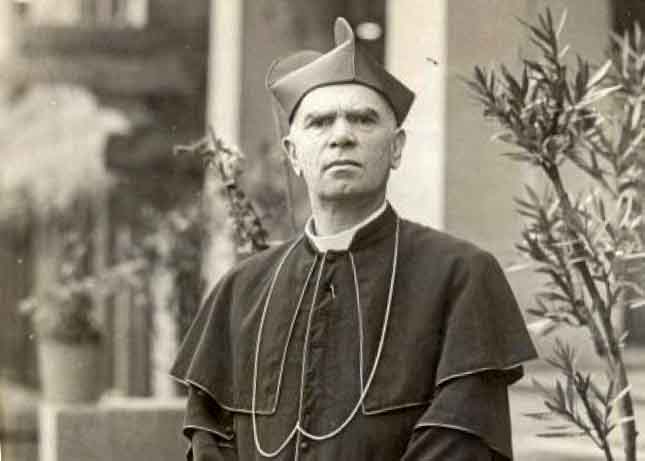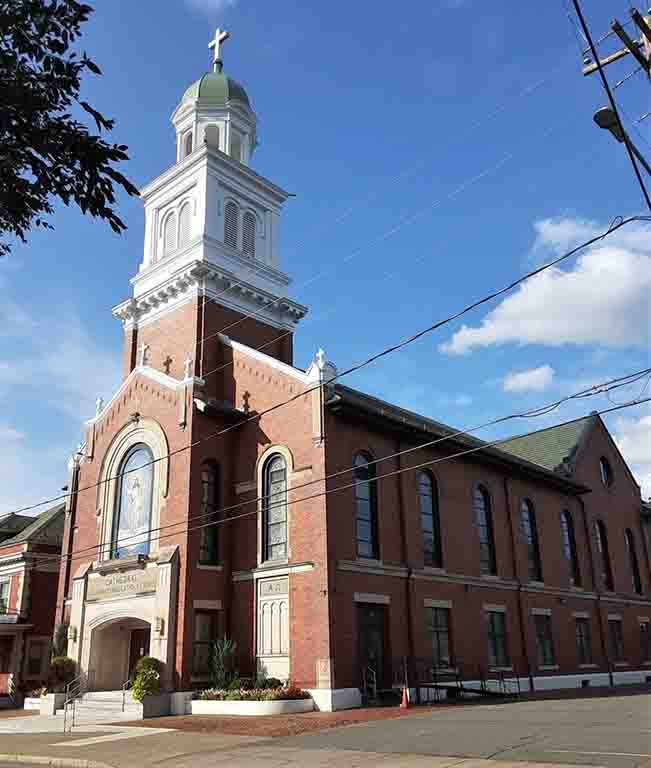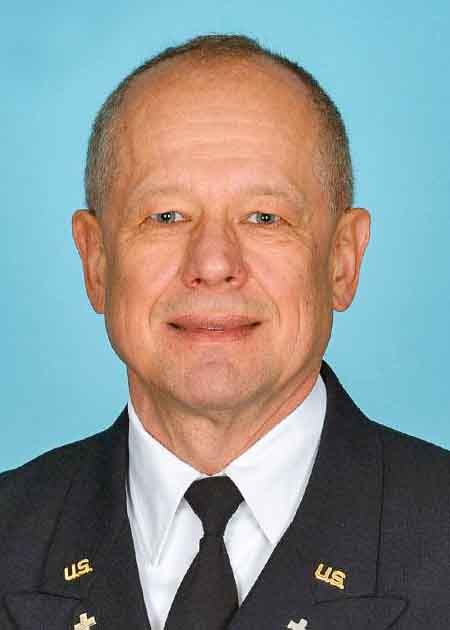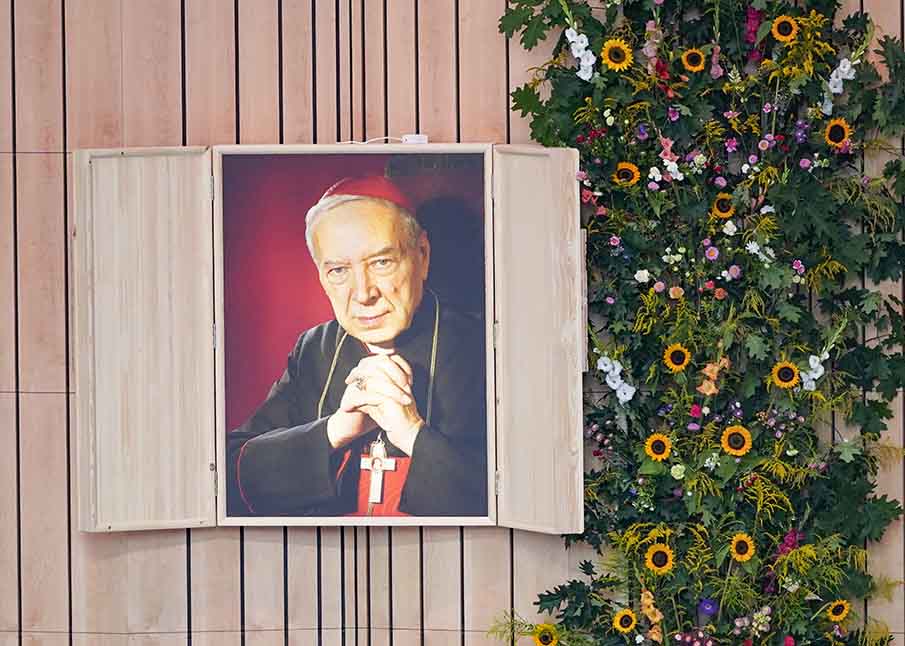Introduction
In the dynamic religious landscape of the United States, the Polish National Catholic Church (PNCC) emerges as a unique denomination that has extended its reach far beyond its original Polish immigrant constituency. Founded in the late 19th century amidst the struggles for autonomy, preserving the heritage, and self-governance within the Polish community, the PNCC has since evolved, embracing an increasingly diverse demographic in the US, Canada, and Europe. Today, most of the PNCC parishes reflect the rich diversity of American society, including people of all backgrounds, ethnicities, and walks of life, fostering a faith community that celebrates our shared brotherhood and sisterhood in Christ. The growth of the popularity of the PNCC within diverse communities across our nation invites exploration into the reasons for our Church's appeal to these communities, which are often characterized by their rich spiritual traditions and close-knit familial bonds.

Polish National Catholic Church Logo (Source: Wikipedia)
This analytical endeavor will explore how the PNCC’s commitment to social justice, theological openness, its democratic approach to church governance, and its embrace of vernacular liturgy create an inviting space for ethnically diverse worshippers. Additionally, we will consider how the Church’s acceptance of married clergy and its social teachings align with the community-centric and family-oriented ethos of different cultures. Furthermore, we will investigate the PNCC’s robust educational initiatives and community support systems that offer a nurturing environment for the holistic development of youth, ensuring the continuity of spiritual and moral values. Through this examination, I aim to articulate why the PNCC is not only becoming popular within our diverse, especially Hispanic, communities but also how this growing relationship is mutually enriching, bridging heritage with modernity, and creating a vibrant community of shared faith and cultural identity.
Attractive Universal Values of the PNCC
The Polish National Catholic Church espouses a series of values that transcend cultural boundaries and hold a particular appeal for the diverse society in the United States, Canada, and beyond. These values are not merely relics of the PNCC's historical context, but rather vibrant assets that make the Church relevant in the modern multicultural and diverse society. This unique blend creates a compelling ethos that resonates deeply with the cultural and religious sensibilities of our society, particularly those within the growing Hispanic population of the PNCC.
I hope that these times are all gone when pastors were receiving phone calls: “Do I need to be Polish to attend your church?” or “Do I need to be Polish to baptize my child in your parish?”. While I was still a “civilian” pastor, I noticed the shift in those demographical dynamics and felt blessed to pastor parishioners of Haitian, African, Hispanic, and other European descent. As an Army Chaplain, I was stationed at Fort Sam Houston, San Antonio, TX, several years ago, and I supported our Annunciation of the Blessed Virgin Mary and St. Martin and St. Rose parishes composed of the faithful of the Hispanic heritage. In the military, my congregants are as diverse as our force is. During my last deployment to Afghanistan, my military congregation was composed of American and Polish soldiers, but the largest part was composed of security guards from Ghana. The Ghanaians also established a choir and sang during our Mass every Sunday, performing occasionally hymns in Swahili. They all knew that I was a PNCC priest and what the relationship and differences between our and the Roman Catholic Church are, and they liked that.
In my opinion, one core value that holds universal appeal is the PNCC's steadfast commitment to social justice based on the commandment of love. Our denomination was founded in Scranton, PA, in 1897 by Prime Bishop Francis Hodur who was an extremely strong advocate for social justice and equality. He believed that all individuals deserved dignity, respect, and fair treatment regardless of their background or social status. He spoke out against oppression, discrimination, and inequality in society. Prime Bishop Hodur supported the rights of workers, and labor unions and strongly advocated for fair wages, safe working conditions, and the right to organize. He believed that workers should be treated justly and with dignity. Additionally, Prime Bishop Hodur was actively involved in community outreach, charitable work, and protection of the unjustly oppressed. He established programs to help the poor, the homeless, and the marginalized, always stressing the importance of caring for those in need and working towards a more compassionate and inclusive society. Therefore, he promoted ethnic and religious equality within the Church and in society at large. He advocated for the rights of Polish immigrants in the United States and worked to create a welcoming and inclusive community for all members of the Church.

Bp. Franciszek Hodur (Source: Alchetron)
His views on social issues affecting hard working class characterized Prime Bishop Hodur's spiritual leadership. He was a trailblazer in advocating for social justice within the Church and in the wider community. His teachings and actions inspired others to follow his example and fight for a fairer society. Therefore, the PNCC has a long history of advocating for the marginalized, oppressed, and disadvantaged. Our Church is noted for its social teachings, which align with the wide community's concerns about social problems in our country, which include economic disparity, quality of life, worker protections, accessibility and high cost of healthcare, violence, and social divisions, naming a few. The Church's positions on issues like immigration, workers' rights, and community solidarity resonate today with many hard-working individuals who experience these challenges firsthand. The Church’s active engagement in social matters provides not just spiritual support but also a sense of advocacy for those within the community seeking both divine and societal justice. The PNCC's fight for a just society fosters a sense of solidarity and empowers ordinary families to find their voices and advocate for a better future. This commitment to social justice, which is based on Biblical principles, transcends cultural differences and speaks to a shared human yearning for equality and opportunity for all.
Furthermore, the Church’s emphasis on strong family ties and a vibrant community mirrors the values often held dear within other cultures, including Hispanic. The concept of "familismo," the centrality of family in Hispanic culture, finds a natural home within the Church's focus on fostering a supportive and welcoming environment. This sense of community extends beyond the immediate family to encompass the broader parish networks. Our parishes often serve as social hubs, providing a space where families can connect, celebrate traditions together, and find support during difficult times. This shared sense of belonging fosters a deep sense of security and belonging, a value highly cherished within our communities.
The PNCC's approach to faith also contributes to its universal appeal. While firmly rooted in the core Christian values of the undivided Church, the PNCC allows for a more inclusive and culturally sensitive expression of faith as it was in the first millennium of the Church. This flexibility is attractive to most, but particularly to Hispanic communities who may have reservations about certain practices within the Roman Catholic Church.
For example, the PNCC permits married clergy as it is outlined in the Bible (i.e. 1 Timothy 3:2-5) and it was the common practice for eleven centuries of the undivided Church. This stance of voluntary celibacy within the PNCC reflects a Biblical and modern understanding of clergy living within the context of a family, which is highly appealing to military congregants and to most Americans who place a high value on familial relationships. Married priests are seen as being more in tune with the experiences and challenges of their parishioners, as they go through the same challenges as their parishioners, thereby fostering a more empathetic and authentic pastoral relationship. For communities that emphasize the centrality of family life, the presence of married clergy reinforces the Church's commitment to understanding and supporting family dynamics. This openness allows for a more culturally relevant expression of faith, creating a space where families feel comfortable practicing their beliefs while still retaining their unique cultural traditions.
Many soldiers and their spouses chose pastoral counseling services from the PNCC military chaplains because they are married priests and bring firsthand experience with marriage and its challenges to the counseling table. As chaplains, we can relate to the dynamics of couple relationships, communication issues, and the complexities of family life, including raising healthy emotional and spiritual children. Our clients perceive that a married priest has a deeper understanding of emotional intimacy, commitment, sacrifice, and the different needs and perspectives that couples bring to a relationship. The fact that I am a married priest, opened a window of opportunity for intensive ministry through pastoral counseling also to the Polish soldiers and African security guards during my deployments to the Middle East as their chaplains were celibate priests, and according to them “did not understand real life at all.”
Our Church distinguishes itself with an inclusive theological stance that diverges from the strict dogmatism found in some other Christian denominations. It rejects the notion of papal infallibility and embraces a more collegial and consultative church governance model. This openness in theological discourse encourages participation and allows members to voice their opinions and influence church decisions. The laypeople govern not only parishes but also, along with clergy, can vote for candidates for bishops. Additionally, our Church embraces lay female leadership roles, which can resonate with many families seeking a more biblical approach to religious traditions. For the US society, often characterized by their democratic and communal values, this approach to church leadership is particularly attractive. It offers a spiritual space where lay people's voices are heard and respected, fostering a sense of belonging and empowerment.
Among the most compelling features of the PNCC is its liturgical beauty expressed by deep spiritual reverence of the sacred mystery that is celebrated as communal worship of our Lord and Savior. While the church retains traditional liturgical elements, it also allows for services to be conducted in the languages spoken by its congregants. For Hispanics, this means the ability to worship in Spanish, facilitating a deeper spiritual connection and understanding of the liturgy. This flexibility honors their language and culture, making the church's rituals and teachings more accessible and personally meaningful.

St Stanislaus PNCC Cathedral in Scranton, Pennsylvania (Source: Wikipedia)
More importantly, practicing the general confession and absolution within the PNCC offers numerous spiritual and communal benefits for the faithful gathered to celebrate the Holy Eucharist. This time-honored rite of administering the Sacrament of Penance encourages parishioners to engage in self-reflection, acknowledging their sins and seeking forgiveness from a loving and merciful God. The communal aspect of this practice reinforces the sense of unity among congregants, as they collectively confess their sins and support one another in their spiritual journey. Additionally, the absolution granted by the priest, provides a tangible sense of relief and spiritual renewal, reminding the faithful of God’s infinite grace and the transformative power of His forgiveness. This ritual not only fosters a deeper personal connection with God but also strengthens the bonds within the church community, promoting a culture of humility, reconciliation, and spiritual growth. This combination of values positions the PNCC as a church that is attractive to any community seeking a more inclusive and deeper spiritual experience.
Benefits to Hispanic and Other Communities
Our Church not only offers an inclusive and welcoming environment but also provides tangible benefits to the community through its structure, practices, and values. These benefits contribute to the well-being of individuals and families and support the integration of newcomers into the rich fabric of the Church’s spiritual and cultural traditions.
Community is a cornerstone of many cultures, with extended family and local networks playing a crucial role in social life. Our Church fosters this sense of community by encouraging active participation in church life and offering a range of support services that resonate with the American values of freedom, equality, democracy, and justice. Parishes often become focal points for social gatherings, cultural celebrations, and mutual aid, which are important for maintaining a strong community bond.
Furthermore, the Church’s emphasis on family is particularly significant. Through family counseling, youth programs, and family-oriented events, the Church provides a supportive environment that strengthens family ties and helps members navigate the complexities of modern life. For multicultural families, this reinforces their emphasis on familial solidarity and provides a space where family values are celebrated and upheld.
The PNCC recognizes the importance of cultural expression as a component of spiritual life. It allows for the integration of customs, music, and art into its services and parish activities, which helps to preserve and honor the rich cultural heritage of its members. This inclusive approach enables individuals to see their own identity reflected in the Church, fostering a sense of pride and belonging.
By integrating cultural elements into the worship experience, our Church ensures that the spiritual needs of the community are met in a way that is relevant, resonant, and theologically sound. It also provides an opportunity for intercultural exchange, where different traditions are shared and appreciated within the broader church community, enriching the PNCC experience for all members.
Educational programs within our parishes, including Sunday schools, religious classes, and youth groups, play a vital role in the spiritual and ethical development of children and teenagers. These programs not only teach the tenets of the faith but also emphasize moral values and community service, which are important aspects of any culture. The Church's focus on youth engagement ensures that the next generation is raised with a strong foundation in their faith and values. This is particularly beneficial for any first-generation emigrants, whose children can sometimes feel caught between their cultural heritage and the pressures of assimilating into mainstream American society. The Church provides a safe space for young members to explore and affirm their identity while being part of a supportive faith community.
For many individuals with a Roman Catholic background, the PNCC offers spiritual continuity through its sacramental practices and liturgical forms. The familiarity of the Mass, the sacraments, and other religious observances provides a comforting link to their spiritual heritage. This continuity is important for individuals and families who may be seeking a church that aligns with their traditional beliefs while also offering a more participatory, inclusive, and democratic approach.
The PNCC's reverence for traditional Catholic worship, combined with its openness to certain cultural forms of expression, ensures that members do not have to choose between their cultural heritage and a faith community. By honoring the past while embracing the future, the Church provides a spiritual home that nurtures faith across generations.
The Church’s reverence for tradition is reflected in its liturgical practices, sacraments, and rituals, which draw from both the Catholic tradition and the unique heritage of the PNCC. This respect for tradition resonates with the values of many communities, which often hold deep reverence for customs and rituals that have been passed down through generations. By honoring these traditions within the context of the PNCC, all can find a spiritual home that respects and celebrates their cultural heritage. I vividly remember an outdoor life-play of the Stations of the Cross at the Annunciation Parish or the matachines dancing on the feast of Our Lady Guadalupe, which is celebrated on December 12th, or mariachis playing during the Sunday Masses.
I also witnessed the harmonious fusion of the Polish All Souls' Day and Wypominki (prayers for the dead, -ed.) with the vibrant Mexican Día de los Muertos (Day of the Dead -ed.) which created a unique, theologically sound, and culturally rich celebration of remembrance. The hallway leading to the church's sanctuary, adorned with marigolds and candles, reflected a blend of traditions. After Mass, names of the faithful departed were read, echoing the Wypominki practice. Parishioners participated in prayers giving testimonies to the universal human experience of love, loss, and the enduring hope for spiritual reunion with our departed loved ones and resurrection. This inclusive approach allowed parishioners of Hispanic descent to see their traditions reflected in the life of the Church, fostering a sense of belonging and cultural pride.
Conclusion
The PNCC stands as a beacon of faith and community for all families and individuals in the United States and beyond, offering a unique blend of universal values, tangible benefits, and cultural integration. Through its inclusive theology, liturgical flexibility, and commitment to social justice, the Church provides a welcoming spiritual home for all seeking a church that honors their traditions and values.
By fostering community and family support, integrating cultural traditions, engaging youth in education, and ensuring spiritual continuity, the PNCC enriches the lives of its members and strengthens the bonds of faith and culture within its congregation. Through its respectful integration with the community's spiritual and cultural traditions, the Church creates a space where diverse beliefs and practices converge, fostering a sense of unity and shared heritage among its members.
In embracing the values and traditions of diverse communities, the PNCC not only expands its reach and relevance but also exemplifies the power of faith to bridge cultural divides and unite individuals in a common journey of spiritual growth and community service. As our Church continues to grow within different communities, its commitment to inclusivity, cultural diversity, theological purity of the undivided Church, and social justice will serve as a beacon of hope and inspiration for all who seek a church that embraces the richness of human diversity, the universality of faith, importance of Sacraments, and corporate worship of our living God.








